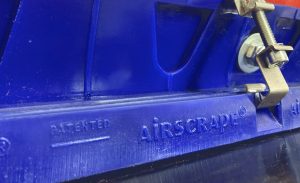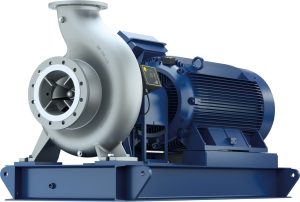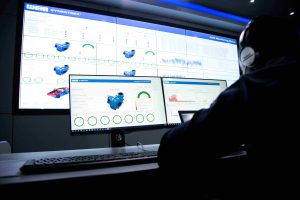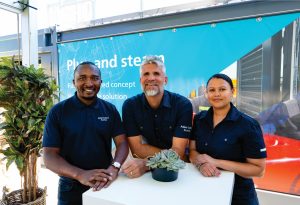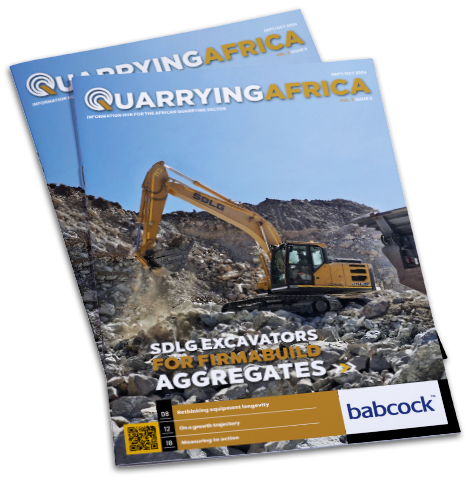Afrimat has released results for the year ended 28 February 2023, with revenue up 4,9% to R4,9-billion (2022: R4,7-billion).
Group CEO Andries van Heerden says Afrimat remains resilient, delivering satisfactory results supported by its diversification strategy. “Diversification, increased volumes from the mines coming online and efficiency improvement initiatives remain the cornerstone of our strategy and are used to counter macro-economic impacts beyond management’s control.”
He adds that strategic initiatives which contributed positively to the group’s performance included the successful commissioning of the Jenkins iron ore mine (‘Jenkins’), the turnaround of the Nkomati anthracite mine (‘Nkomati’) and ongoing continuous improvement initiatives at existing operations. Detractors were the decrease in iron ore prices and the economic slowdown, which impacted the Construction Materials and Industrial Minerals businesses, exacerbated by a rise in input costs such as diesel, explosives and electricity.
Financial results
Group revenue increased by 4,9% from R4,7-billion to R4,9-billion. Operating profit decreased by 13,3% from R1,1-billion to R1,0-billion, resulting in the operating profit margin declining from 23,7% to 19,6%.
A rise in future volumes, as these mines reach a steady state, is expected in the coming year. Headline earnings per share declined by 15,7% from 542,9 cents to 457,6 cents.
Net cash from operating activities of R1,0-billion was generated, as well as R680-million from a successful equity raise during the year, resulting in the net debt:equity ratio decreasing from 12,1% to 4,4%, this is aside from the fact that R963-million was advanced into various capital investments during the year. The strong cash generation enables the Group to execute its growth strategy.
Afrimat declared a final dividend of 110,0 cents per share.
Operational review
Van Heerden explains that Afrimat’s operating units are strategically positioned to deliver outstanding customer service while offering efficient protection against volatile local business conditions. “Our product range is wide, diversified and importantly, growing.”
The Bulk Commodities segment, consisting of the Demaneng and Jenkins iron ore mines, and the Nkomati anthracite mine, contributed 81,9% to the group’s operating profit. This excellent performance was largely due to increased volumes from Jenkins coming into production, the successful turnaround of Nkomati, and cost-saving initiatives.
Jenkins is fully operational and together with Demaneng sold 1 280 299 tonnes for F2023
(F2022: 1 190 132 tonnes). Although the operating profit decreased by 15,6% due to the decline in the iron ore price and a rise in input costs, a healthy operating profit margin of 40,3% was generated from the iron ore mines. The allocation of trains from Transnet is also becoming more consistent. “This segment is well-positioned to weather the volatility of the iron ore price because it is a low-cost producer and has fixed pricing agreements for its inland iron ore and anthracite revenue.”
“Innovative technology solutions, which optimise mine fleet efficiency were rolled out at Jenkins and Demaneng, resulting in cost savings which countered, to an extent, the rise in the diesel price and the fall in the iron ore price.”
Nkomati has turned from initial start-up losses to being profitable and contributed 23,1% to the segment’s revenue for the year. It produces a high-quality product sold into the local market, as a replacement for imported anthracite, and is recognised as a consistent, reliable supplier of anthracite. During F2023, volumes at Nkomati amounted to 317 943 tonnes (F2022: 219 845 tonnes). An exciting new operational strategy is being implemented by the mine, which is expected to improve performance significantly in the near future.
Van Heerden explained that the long-term sustainable life of mine plan is being enhanced through the opening of two opencast pits and the continued development of the underground operations. “The first anthracite from these developments was extracted early in the new financial year. These planned new sources will enhance the mine’s production capacity significantly.”
He added that the Industrial Minerals businesses across all regions had delivered satisfactory results, given the current economic operating conditions. “However, the impact of the economic slowdown was exacerbated by electricity supply interruptions, resulting in a decrease in operating profit of 41,9% from R84,9-million to R49,4-million.”
The Construction Materials segment also felt the impact of the slowdown in economic activity. The overall reduction in construction activity and electricity supply interruptions caused operating profit to decrease by 17,7% from R157,5-million to R129,6-million.
Future Materials and Metals is the most recent segment to be added to the group’s operational segments to support its diversification strategy. Glenover is the segment’s first project. It diversifies Afrimat’s exposure wider than ferrous metals and aligns it to global trends such as the advancement of technology for decarbonisation (through rare earth minerals) and food security (through fertiliser products).
“Glenover is a greenfield project that started its first production during the year and is currently in ramp-up phase. The project contains three essential businesses – fertiliser for agricultural applications; vermiculite for various applications from industrial to horticulture; and rare earth elements, supporting technological advancements such as high-strength permanent magnets and battery technology.”
Revenue of R25,2-million was generated by the segment, with start-up losses of R11,4-million. “Looking ahead, careful project implementation and the rollout of a well thought-through strategy for Glenover will be a top priority. This is expected to include vermiculite processing, optimisation of the high-grade phosphate project, and the implementation of the super single phosphate project. These product lines will add additional volumes in future.”
Sustainability
Non-financial performance continues to contribute significantly to the Group’s overall resilience, according to van Heerden. “During the year, we maintained good labour relations, and pleasingly no labour action or significant community actions occurred. Afrimat remains committed to creating and sustaining harmonious workplace relationships and proactively addressing issues. Employee development, training and education remain priorities, no matter what.”
Afrimat has a total employee count of 2 668. With training and development being a critical part of the Group, a total of 11 836 training days for employees were undertaken during the financial year, supplemented by the issuance of 66 staff bursaries.
With regard to the environment, he said that work on Afrimat’s carbon neutrality strategy continues. “An initial renewable energy project to reduce carbon emissions is underway at Glen Douglas Dolomite. A target is set to decrease carbon emissions by 32% by 2030. In line with a sector change to general mining, disclosure improvements are available on the Afrimat website relating to the Mineral Resources Register.”
Outlook
The group is well positioned to capitalise on strategic initiatives and future opportunities, van Heerden indicated, adding that future growth would be driven by the successful execution of Afrimat’s proven strategy, recent acquisitions and a wider product offering to the market, with many exciting potential opportunities being investigated.
“We continue to focus on sustainable diversification in all five segments. In the new Future Materials and Metals segment, the priority is to ramp up the production of high-grade phosphate and to execute the next stages of the project as seamlessly as possible, while the Bulk Commodities segment has implemented an internal efficiency drive with new technology, which has proven to be highly successful. These solutions will now be implemented throughout the Group to improve efficiencies and margins further.”
He says these efficiency initiatives are aimed at countering inflationary mining cost increases.
Continuing, he indicates that the group has Driehoekspan and Doornpan iron ore assets to bring online once Demaneng volumes begin to reduce. “This should be within the next three years. To optimise production, Nkomati is in the process of opening up two opencast mine areas as well as an underground access point. Volumes are expected to ramp up and the processing plant can take on additional production. Increased volumes from Nkomati and Jenkins, which are not exposed to international iron ore price volatility, effectively buffer us against potential downturns in export iron ore prices.”
In the Industrial Minerals and Construction Materials segments, market and product development continue to take place in response to customer needs. Operational efficiency initiatives aimed at expanding volumes, reducing costs, and developing the required skill levels across all employee categories remain key focus areas for the Group.
Van Heerden concludes by saying that while the operating environment in South Africa remains challenging, Afrimat continues to see value in its diversification strategy. “However, the structural decline in the public sector’s contribution to fixed investment and infrastructure remains a concern for the group.”

